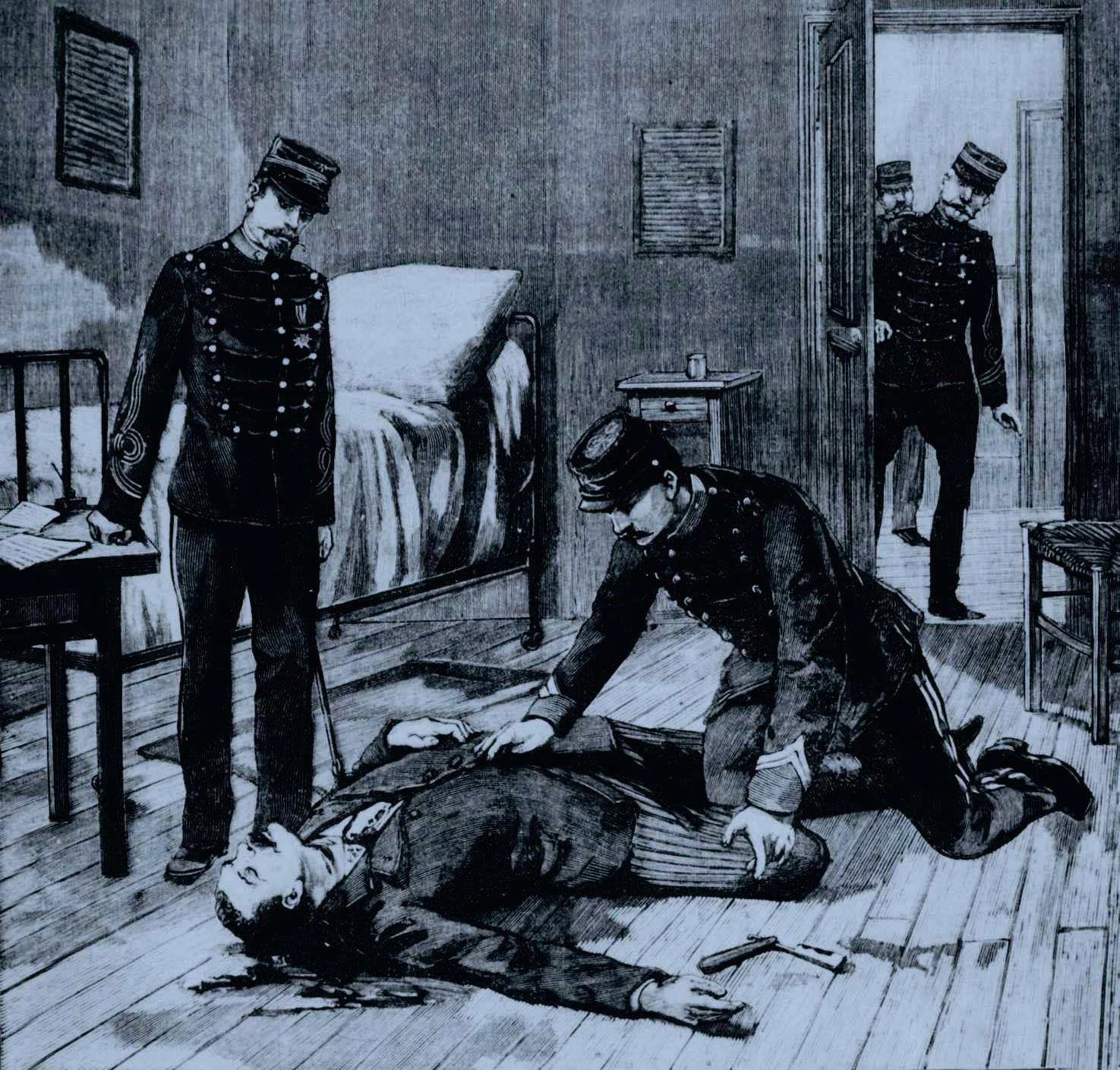Poging GOUD - Vrij
THE SLIPPERY TRUTH OF THE DREYFUS AFFAIR
BBC History UK
|November 2025
The wrongful conviction for treason of a Jewish army captain in France in the late 19th century not only tore the country apart, but also, as Mike Rapport reveals, sparked a flood of ‘fake news’ that has echoes in our own turbulent times.

In the oppressive heat of his cell in the Mont-Valérien military prison west of Paris on 31 August 1898, Lieutenant-Colonel Hubert-Joseph Henry wrote a despairing letter to his wife, drank half a bottle of rum, and killed himself.
This desperate act was a pivotal moment in one of the best-known causes celebres in modern history: the Dreyfus Affair. The story of Henry's suicide, following his arrest for forging a document in the controversial case, was co-opted by the nationalist right-wing media as part of a tidal wave of coverage that threatened to destabilise French democracy and public trust in the Republic.
The background is well known today. In September 1894, Henry, a counterespionage officer, had uncovered evidence of a mole within French military intelligence. A cleaner working in the German embassy (and in Henry's pay) had found a memorandum, since dubbed the 'bordereau', written by an officer in the French General Staff revealing military secrets. The handwriting was identified as that of Alfred Dreyfus, an army captain then working in the War Ministry, who was arrested, court-martialled, publicly degraded and hauled off to solitary confinement on the notoriously harsh penal colony of Devil's Island, off French Guiana.
But the army had the wrong man.
Contradictions and irregularities in the case soon began to appear. In August 1896, the new head of military intelligence, Lieutenant-Colonel Georges Picquart, was examining more papers stolen from the German embassy. The handwriting on one was identical to that in the bordereau used to convict Dreyfus - but the signature was that of Ferdinand Walsin Esterhazy, a dissipated, debt-ridden, disreputable officer who had been selling secrets to the Germans for two years. Dreyfus, Picquart realised, was innocent.
Ignoring the errors
Dit verhaal komt uit de November 2025-editie van BBC History UK.
Abonneer u op Magzter GOLD voor toegang tot duizenden zorgvuldig samengestelde premiumverhalen en meer dan 9000 tijdschriften en kranten.
Bent u al abonnee? Aanmelden
MEER VERHALEN VAN BBC History UK

BBC History UK
Hymn to life
Scripted by Alan Bennett and directed by Nicholas Hytner - a collaboration that produced The Madness of King George and The History Boys – The Choral is set in 1916.
1 min
December 2025

BBC History UK
Helen Keller
It was when I was eight or nine years old, growing up in Canada, and I borrowed a book about her from my local library.
2 mins
December 2025

BBC History UK
Spain's miracle
The nation's transition from dictatorship to democracy in the late 1970s surely counts as one of modern Europe's most remarkable stories. On the 50th anniversary of General Franco's death, Paul Preston explores how pluralism arose from the ashes of tyranny
8 mins
December 2025

BBC History UK
Just how many Bayeux Tapestries were there?
As a new theory, put forward by Professor John Blair, questions whether the embroidery was unique, David Musgrove asks historians whether there could have been more than one 'Bayeux Tapestry'
7 mins
December 2025

BBC History UK
In service of a dictator
HARRIET ALDRICH admires a thoughtful exploration of why ordinary Ugandans helped keep a monstrous leader in power despite his regime's horrific violence
2 mins
December 2025

BBC History UK
The Book of Kells is a masterwork of medieval calligraphy and painting
THE BOOK OF KELLS, ONE OF THE GREATEST pieces of medieval art, is today displayed in the library of Trinity College Dublin.
3 mins
December 2025

BBC History UK
Passing interest
In his new book, Roger Luckhurst sets about the monumental task of chronicling the evolution of burial practices. In doing so, he does a wonderful job of exploring millennia of deathly debate, including the cultural meanings behind particular approaches.
1 mins
December 2025

BBC History UK
Is the advance of AI good or bad for history?
As artificial intelligence penetrates almost every aspect of our lives, six historians debate whether the opportunities it offers to the discipline outweigh the threats
8 mins
December 2025

BBC History UK
Beyond the mirage
All serious scholarship on ancient Sparta has to be conducted within the penumbra of the 'mirage Spartiate', a French term coined in 1933 to describe the problem posed by idealised accounts of Sparta.
1 mins
December 2025

BBC History UK
He came, he saw... he crucified pirates
Ancient accounts of Julius Caesar's early life depict an all-action hero who outwitted tyrants and terrorised bandits. But can they be trusted? David S Potter investigates
10 mins
December 2025
Listen
Translate
Change font size

